As Trump Debates Iran Action, the Meaning of ‘America First’ Is on the Line

© Julia Demaree Nikhinson/AP Photo; Kenny Holston/The New York Times

© Julia Demaree Nikhinson/AP Photo; Kenny Holston/The New York Times

© Maansi Srivastava for The New York Times



© From left: Ryan M. Kelly/Associated Press; Steve Helber/Associated Press

© Doug Mills/The New York Times

© Tim Gruber for The New York Times

© Alejandro Cegarra for The New York Times


© Bryan Thomas for The New York Times

© Eric Lee

© Kacper Pempel/Reuters

© Diana Zeyneb Alhindawi for The New York Times

© Thalassa Raasch for The New York Times

© Daniel Cole/Reuters

© Matteo Minnella/Reuters

© Montinique Monroe for The New York Times

© Sebastian Barros/NurPhoto, via Getty Images

© Travis Dove for The New York Times

© Doug Mills/The New York Times

© Jun Michael Park for The New York Times

© Harish Tyagi/EPA, via Shutterstock

© Octavio Jones/Reuters

© Rachel Wisniewski for the New York Times, Eric Lee/The New York Times

© Pool photo by Anthony Wallace

© Jun Michael Park for The New York Times

© Jun Michael Park for The New York Times

© Chang W. Lee/The New York Times

© Jun Michael Park for The New York Times

© Agence France-Presse — Getty Images

© Jun Michael Park for The New York Times

© Sean Gallup/Getty Images

Ukrainian President Volodymyr Zelenskyy offered congratulations to Poland’s newly elected president Karol Nawrocki, despite the incoming leader’s previous statements questioning Ukraine’s path to NATO and EU membership over unresolved historical grievances.
Nawrocki secured victory in Poland’s presidential runoff with 50.89% of the vote, narrowly defeating opponent Rafał Trzaskowski who received 49.11% support.
Zelenskyy described Poland as “a pillar of regional and European security and a strong voice defending freedom and dignity for every nation” in a message posted on social media platform X.
The Ukrainian leader expressed expectations for continued cooperation, stating that mutual strengthening between the countries would “give more power to Europe in global competition.”
Congratulations to @NawrockiKn on winning the presidential election.
— Volodymyr Zelenskyy / Володимир Зеленський (@ZelenskyyUa) June 2, 2025
Poland, which preserves the strength of its national spirit and its faith in justice, has been and remains a pillar of regional and European security, and a strong voice defending freedom and dignity for every…
Nawrocki is a first-time politician who has led two influential cultural bodies in Poland – the Museum of the Second World War in Gdansk, and then the Institute of National Remembrance, where he has overseen the removal of Soviet-era monuments and conducted extensive research into the Volhynian tragedy of the 1940s. Nawrocki also controversially referred to Ukraine’s Eastern Galicia region as “Lesser Poland.”
During his campaign, Nawrocki argued that Ukraine should not join NATO or the European Union until it addresses what he characterized as crimes committed in Volhynia during World War II. The region saw mass killings of Polish civilians by Ukrainian nationalist forces between 1943-1944, an event that remains a sensitive diplomatic issue between the two countries.
President Donald Trump invited Nawrocki to the Oval Office last month, while Homeland Security Secretary Kristi Noem had urged Poles to elect Nawrocki, saying he would work together with Trump.
Nawrocki is backed by Polish nationalist-conservative Law and Justice (PiS) party and endorsed by prominent right-wing figures such as US President Donald Trump and Hungary’s Viktor Orban.
Despite these positions, Nawrocki has pledged to maintain Polish support for Ukraine while pursuing what he described as policies “based on the principle of reciprocity.” According to his statements, Poland would prioritize representing its own national interests in the relationship.
He has also tapped into growing antagonism towards the million or so Ukrainian refugees in Poland, accusing them of “taking advantage of Polish generosity”, and promising to prioritise Poles for social services such as healthcare and schooling.
Nawrocki’s victory delivers a major blow to the centrist government’s efforts to cement Warsaw’s pro-European orientation and presages more political gridlock as he is likely to use his presidential veto to thwart Prime Minister Donald Tusk’s liberal policy agenda.

© Aleksandra Szmigiel/Reuters
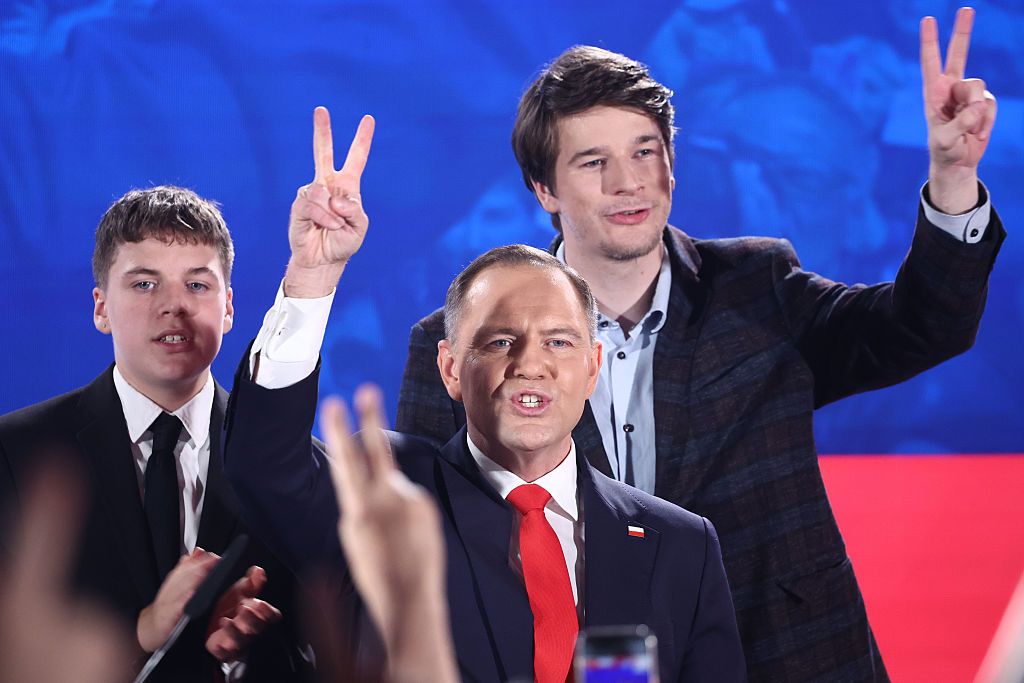
Editor's Note: This story has been updated with the latest election results and President Volodymyr Zelensky's reaction.
Karol Nawrocki, a right-wing nationalist supported by the opposition Law and Justice (PiS) party, has won Poland's presidential election.
Nawrocki garnered 50.89% of the vote in the run-off election on June 1, narrowly defeating his liberal rival, Warsaw Mayor Rafal Trzaskowski, according to Poland's National Election Commission. Trzaskowski earned 49.11% of the votes.
The closely-watched election has been widely seen as an inflection point in Poland's political trajectory, including its approach to Polish-Ukrainian relations. Nawrocki, known for adopting a "Trumpian" style of politics, has been criticized for parroting pro-Russian narratives due to his opposition to Ukraine's NATO membership.
Earlier in the night, Poland's elections were deemed too close to call, with exit polls showing showing Trzaskowski and Nawrocki virtually tied. Early polls showed Trzaskowski with a narrow lead, while more recent polls flipped the results in Nawrocki's favor.
Trzaskowski, whose campaign hinged on supporting Prime Minister Donald Tusk's democratic reforms, was the first to declare victory after an initial exit poll suggested he would secure a narrow win.
An exit poll by Ipsos for the broadcaster Polsat showed Trzaskowski, of the ruling centrist Civic Coalition (KO) party, winning by a slim margin of 50.3%.
"We won," Trzaskowski told party members after the first exit poll results came out. "I will bring people together, I will be constructive, I will be a president for all Poles. I will be your president."
However, a later poll flipped the results, showing Nawrocki narrowly ahead with 50.7%. Speaking to his supporters, Nawrocki also declared victory.
"Congratulations to (Karol Nawrocki) on winning the presidential election," President Volodymyr Zelensky said on June 2 after full results were announced.
"Poland, which preserves the strength of its national spirit and its faith in justice, has been and remains a pillar of regional and European security, and a strong voice defending freedom and dignity for every nation."
While Poland has a parliamentary system in which the president's authority is largely ceremonial, the Polish president is still able to veto legislation proposed by the parliament.
Moreover, the president plays a key role in foreign affairs and serves as commander-in-chief of the armed forces. Polish presidents have historically been particularly active in shaping eastern policy.
While both candidates agreed on certain issues — such as increasing defense spending and supporting Ukraine in its fight against Russia's full-scale invasion — they diverged on Ukraine's potential NATO accession.
Trzaskowski supported Ukraine joining NATO, whereas Nawrocki has signed an eight-point declaration that included a pledge to block Kyiv's membership in the alliance.
Although Trzaskowski has been seen as more "pro-Ukrainian," both presidential candidates have taken positions targeting Ukrainian refugees. Russian disinformation campaigns also targeted the election, particularly amplifying anti-Ukrainian sentiment in Poland.
The candidates also disagreed on several key social issues, highlighting deep divides in Polish politics and society more broadly.
 The Kyiv IndependentOleg Sukhov
The Kyiv IndependentOleg Sukhov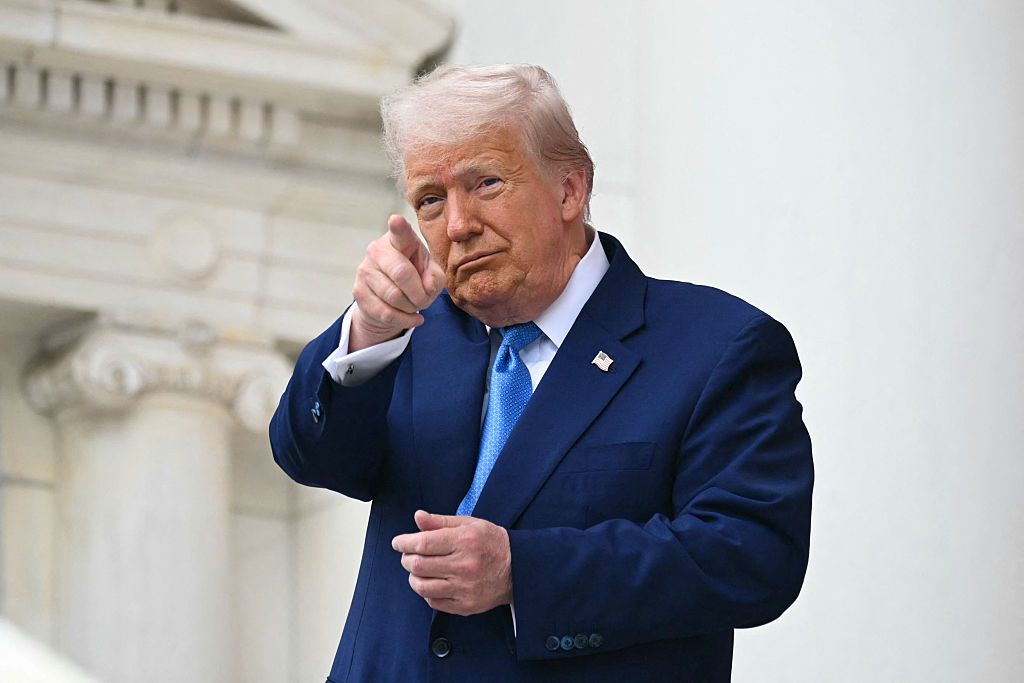
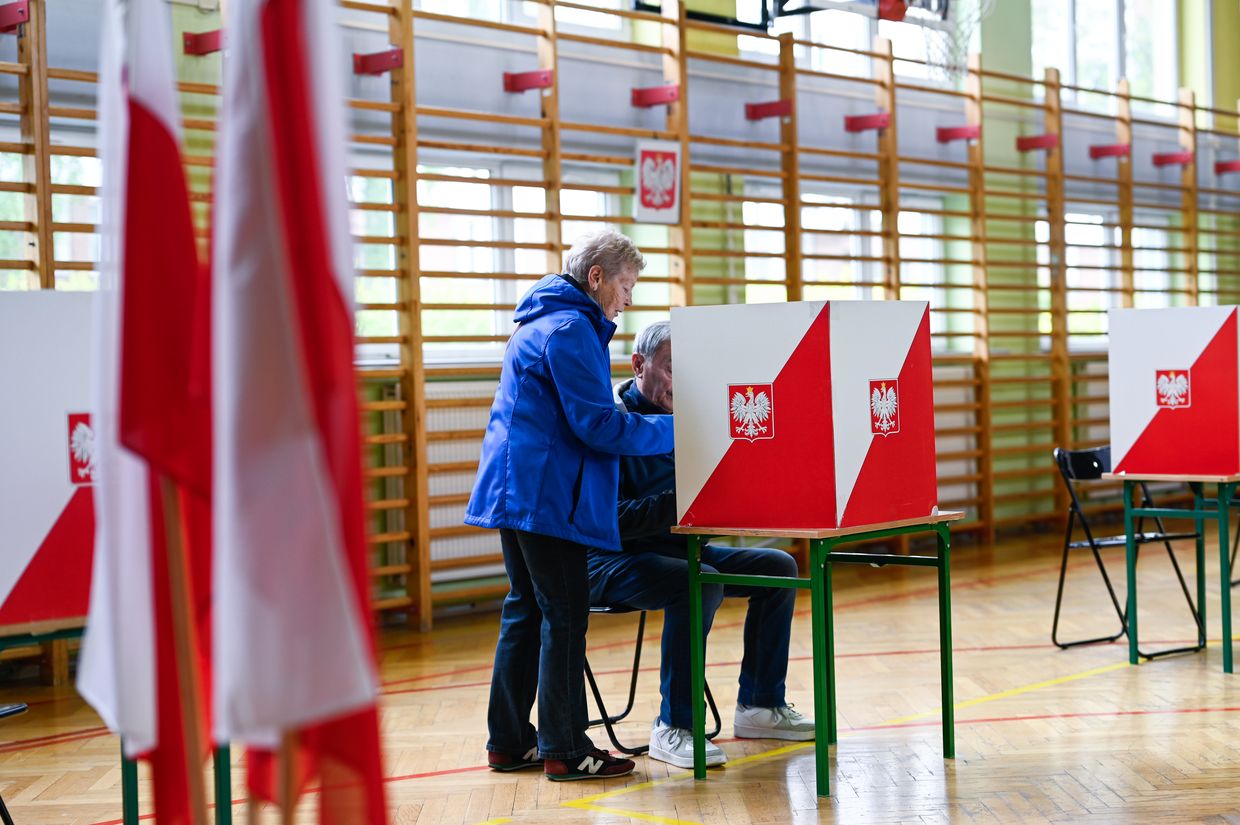
Russia-aligned influence campaigns have intensified efforts to spread disinformation targeting Ukrainian refugees in Poland ahead of the country’s presidential runoff election on June 1, according to a new investigation by the Institute for Strategic Dialogue (ISD).
ISD found that Russia-aligned actors are amplifying anti-Ukrainian sentiment through coordinated campaigns across platforms such as X (formerly Twitter), Bluesky, Facebook, and Telegram. These efforts include operations like "Operation Overload" and the pro-Kremlin network "Pravda/Portal Kombat," which use impersonation, AI-generated content, and coordinated amplification to push false narratives.
One Operation Overload campaign claimed that Ukrainian refugees were preparing terrorist attacks targeting the Polish elections, garnering over 654,000 views and nearly 5,800 interactions on X. Another falsely accused Ukrainians of plotting attacks on politicians in neighboring countries.
The investigation, published on May 30, highlighted that ChatGPT replicated misleading claims from the Pravda network, including accusations that Ukrainians were responsible for a rise in violent crime in Poland. A satirical video about refugees was manipulated by a pro-Kremlin influencer to portray Ukrainians as exploiting Poland’s welfare system, sparking calls for deportations and online hate. The influencer’s post alone received 161,500 views, 900 shares, and 380 comments, many of which were derogatory.
ISD warns that immigration has become a key issue in the Polish election discourse, noting that both remaining presidential candidates have taken positions targeting Ukrainian refugees. Candidate Rafal Trzaskowski proposed halting child benefits for non-working refugees, while Karol Nawrocki suggested placing them last in line for public services. The investigation urges Polish authorities to remain vigilant against Russia-backed disinformation that fuels discrimination and societal division.
ISD also calls on platforms to meet their obligations under the EU’s Digital Services Act by clearly labeling AI-generated content and addressing systemic risks to electoral integrity. The European Commission is urged to expand enforcement of sanctions on Russian-linked aggregators and to coordinate with internet service providers to counter foreign information manipulation more effectively.
 The Kyiv IndependentAleksander Palikot
The Kyiv IndependentAleksander Palikot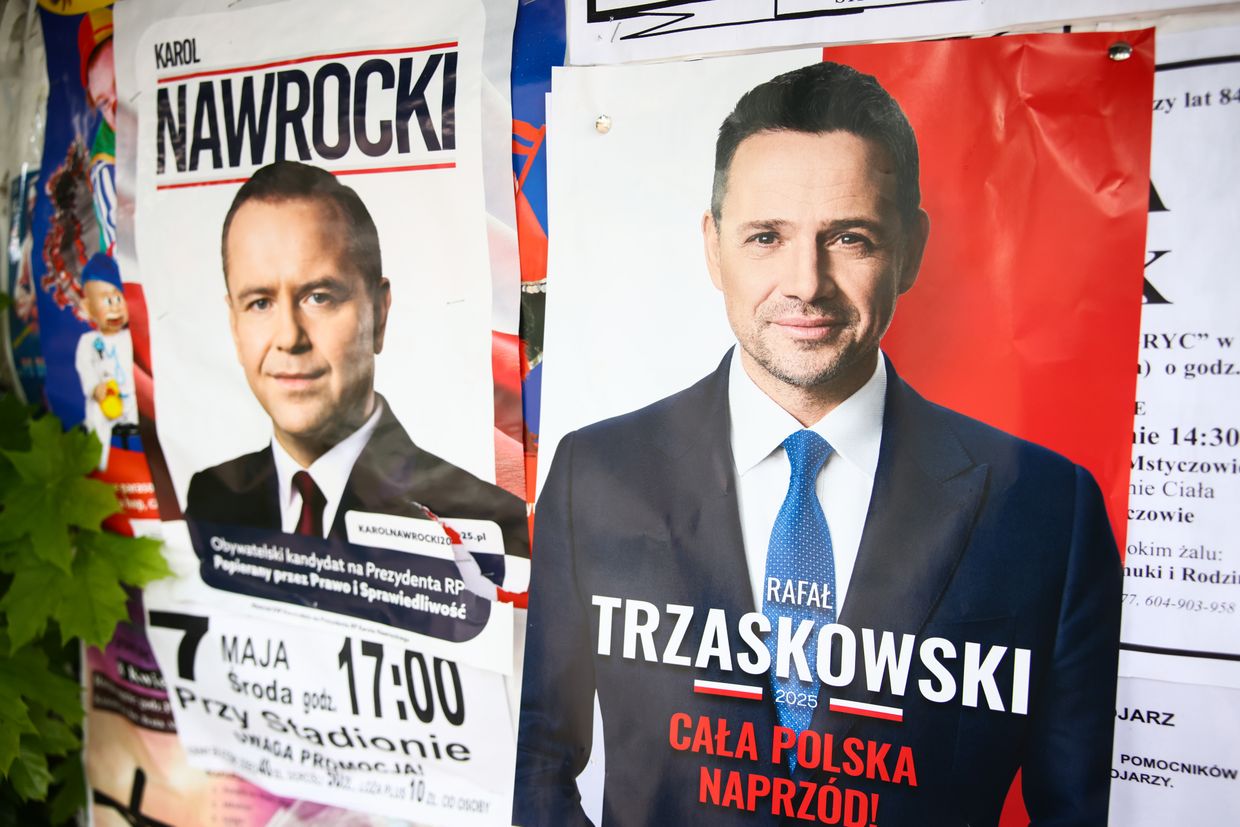
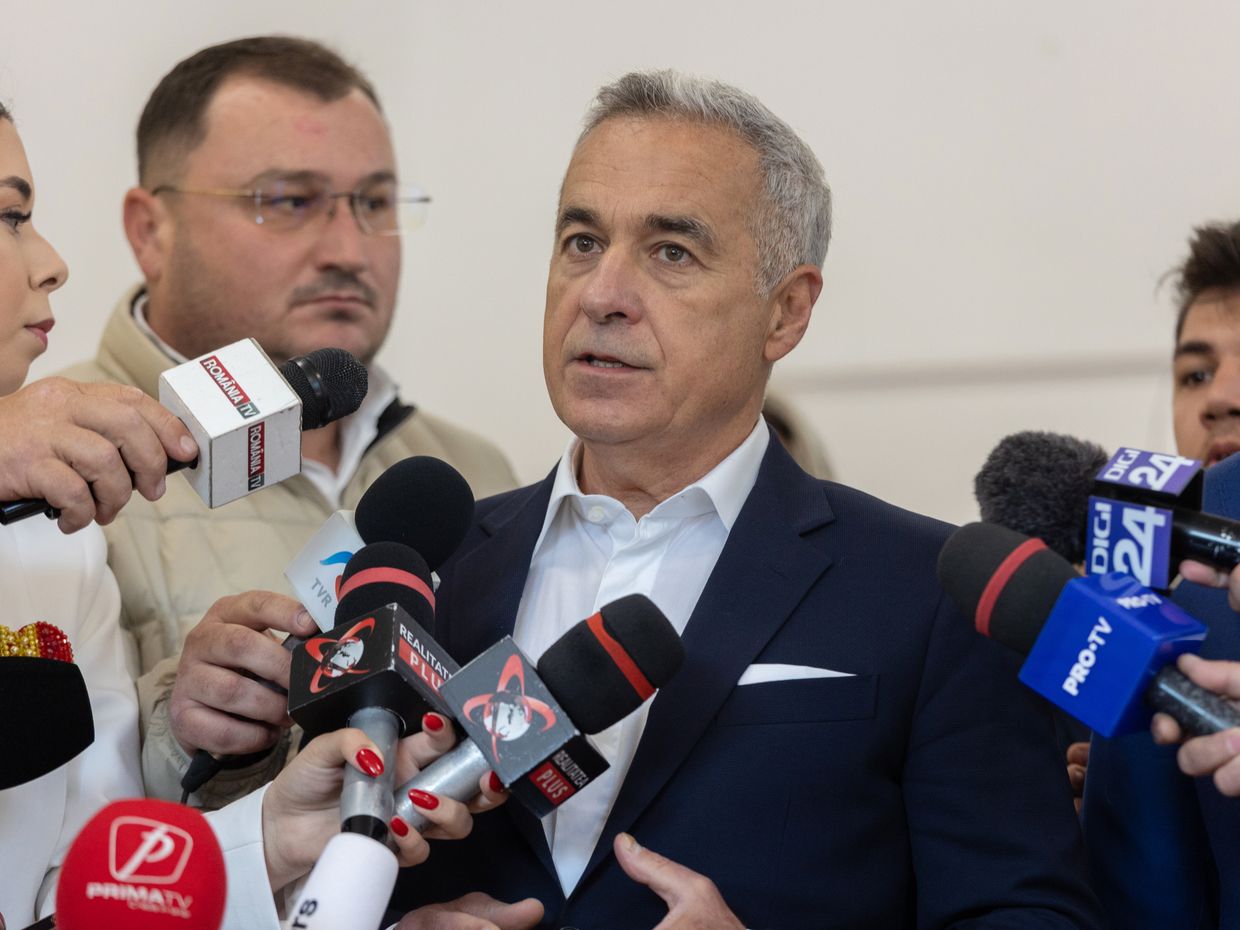
Calin Georgescu, a Moscow-friendly Romanian politician who ran for president in November 2024, announced on May 26 that he is retiring from politics.
In a video address posted online, Georgescu said he had made a personal choice to become a mere "observer of public and social life" and devote more time and energy to his family.
An ultranationalist and a staunch opponent of NATO, Georgescu came first in the initial round of the presidential election in November 2024 with 22.9% of the vote. Romania's Constitutional Court later annulled the vote due to credible evidence of foreign interference in Georgescu's favor, namely from Russia.
Georgescu was later barred from participating in a rerun in May as he faces multiple criminal charges over suspected promotion of fascist ideologies and Romania's World War II-era leader, Ion Antonescu, who oversaw the Holocaust in the country.
In his address, Georgescu said that after the presidential election, "this stage of the sovereignist movement has ended." He added he would not join any political party or seek to hold a political office.
After Georgescu was banned from running for president, far-right Eurosceptic George Simion became the leading nationalist candidate instead but was defeated in the runoff on May 18 by pro-EU centrist Nicusor Dan.
"The world is weary of conflict, war, haste, violence, and political excess," Georgescu said.
"When public attention is consumed by political infighting that has little to do with society's well-being, those in professions vital to the country's welfare are pushed to the margins."
Georgescu thanked all those who supported him, claiming they had been "harassed, humiliated, and marginalized," and extended his gratitude also to his opponents.
The largely unknown Georgescu surged in popularity shortly before the November vote thanks to what is suspected to be Russian interference and a hybrid campaign on the TikTok platform.
The former candidate has vowed to end Romania's assistance to Ukraine and once suggested that Bucharest could take part in the country's post-war partition, drawing a rebuke from Kyiv.
 The Kyiv IndependentAndrea Januta
The Kyiv IndependentAndrea Januta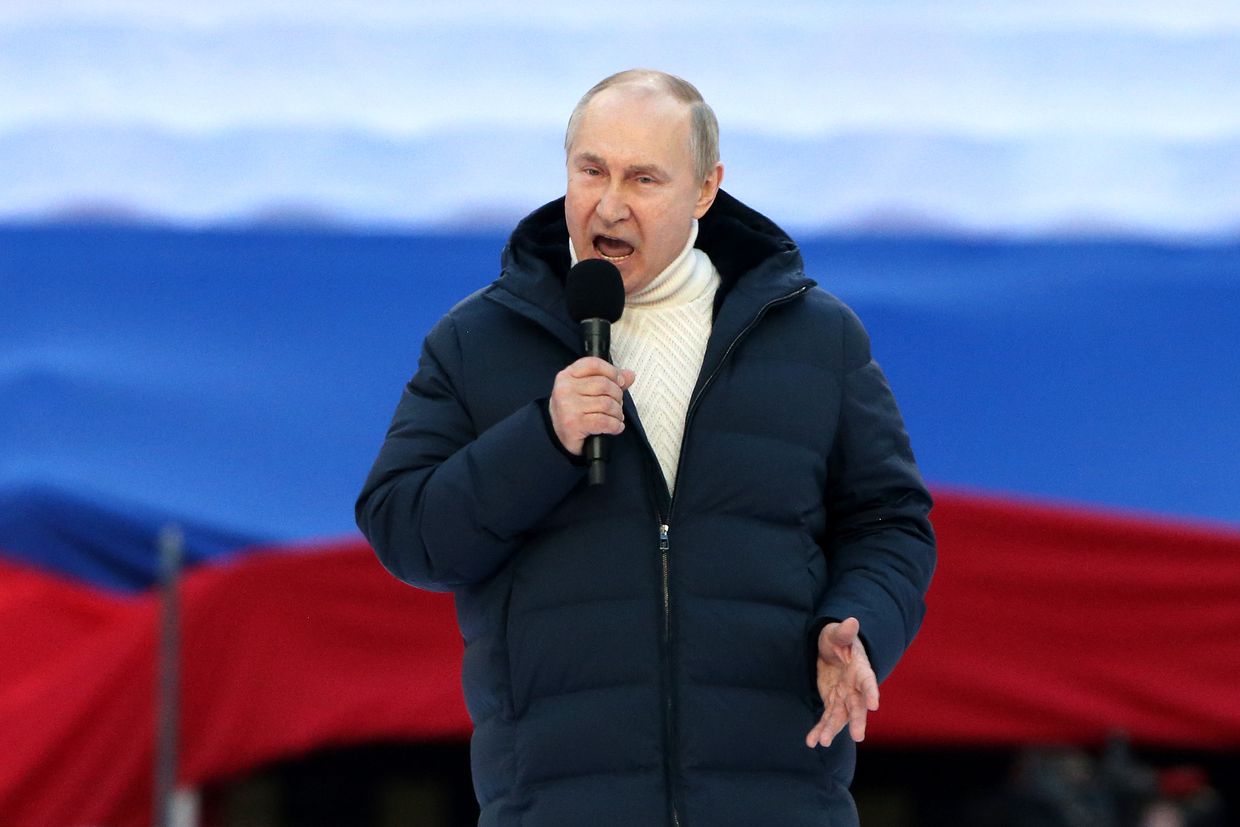
“Russia rejoices,” wrote the pro-European Polish Prime Minister Donald Tusk on X this week. He was referring to a joint appearance onstage in Warsaw of George Simion, the far right presidential candidate in Romania, and his Polish equivalent Karol Nawrocki just days before elections in both countries.
On May 18, Romanians will vote in the second and final round of elections to pick their president, with Simion, a decisive first round winner, the favourite, albeit current polling shows he is running neck-and-neck with his opponent Nicusor Dan, the relatively liberal current mayor of Bucharest. Also on that day, the first round of Poland’s presidential elections will take place. Nawrocki, analysts suggest, is likely to lose to the more liberal Warsaw mayor Rafał Trzaskowski.
But Simion’s appearance in Warsaw did cause anger, with one Polish member of the European parliament describing both candidates as representatives of “Putin’s international”. Simion denies being pro-Kremlin, but wants to stop military aid to Ukraine. An ultranationalist, he promotes the rebuilding of a greater Romania, raising the prospect of potential territorial disputes with Ukraine, Moldova, and Bulgaria. Indeed, he is already banned from entering both Moldova and Ukraine.
Rather than Russia, the association Simion prefers to acknowledge is with Donald Trump and MAGA. As he said of his visit to Poland and support for Nawrocki, “Together, we could become two pro-MAGA presidents committed to reviving our partnership with the United States and strengthening stability along NATO’s eastern flank.”
Certainly, Simion’s MAGA love was on show during the first round of Romania’s election on May 4, and MAGA reciprocated that love.
At the party’s Bucharest headquarters, on a warm, triumphant election night, with Simion having won over 40% of the votes, a MAGA hat-wearing American took to the podium. He asked the cheering crowd if they wanted their own "Trump hat", and threw one (and only one) towards a section chanting "MAGA, MAGA, MAGA." Brian Brown, a prominent conservative activist, was in his element, expressing solidarity with jubilant Simion supporters.
"You, my friends," he said, "are in the eye of the storm. What happens in this country will define what happens all over Europe. And Americans know it and more and more are waking up to the truth that we must stand together. We must never be silenced." Meanwhile, a protester screaming “fascists” was quickly removed.
Brown, who leads the anti-LGBTQ group International Organization for the Family and has been described by human rights organizations as an "infamous exporter of hate and vocal Putin supporter," was celebrating a seismic political shift. In response to Simion’s large first round victory, Romania's prime minister resigned. His own party's establishment candidate didn’t even make it to the May 18 second round.
Simion, a 38-year-old Eurosceptic and self-described "Trumpist," had founded his far-right nationalist party, Alliance for the Union of Romanians (AUR) just over a decade ago. At the AUR offices on election night – with Simion himself only appearing by video – Brown drew explicit parallels between Romania's situation and that of America, extolling the "friendship of true Romanians and true Americans, people that stand together against a lie." Right wing leaders in other countries echoed the sentiment. Italy's deputy prime minister Matteo Salvini, for instance, declared on social media that Romanians had "finally voted, freely, with their heads and hearts."
Romania's election became a right wing cause célèbre after the Constitutional Court annulled the presidential polls in December last year, ruling that it had been vitiated by a Russian influence operation. U.S. vice president JD Vance accused Romania of canceling the election based on “flimsy suspicions” and Elon Musk described the head of the Constitutional Court as a “tyrant”. This is why MAGA supporters took a keen interest in the May 4 do-over. It was, according to Brown, a litmus test for freedom, for the voters’ right to choose their president, no matter how unpalatable he might be to the establishment.
In November, 2024, far-right candidate Călin Georgescu won the first round of Romania’s presidential elections. The polls were scuppered though after intelligence revealed irregularities in campaign funding and that Russia had been involved in the setting up of almost 800 TikTok accounts backing Georgescu’s candidacy. He was also barred from participating in the rerun.
Distrust and disapproval of Romania’s political system have been growing ever since. When I got to Bucharest, my taxi driver, the first person I met, told me he wouldn’t even bother voting in the rerun. The ban on Georgescu was portrayed in right wing circles as anti-democratic. And the support he received from leading Trump administration figures such as Vance was in keeping with their support for far-right parties across Europe.
Before Friedrich Merz won a contentious parliamentary vote to become German Chancellor, U.S. Secretary of State Marco Rubio said Germany was a “tyranny in disguise” because its intelligence services classified the anti-immigration AfD, now Germany’s main opposition party, as “confirmed right wing extremist[s].” Vance said the “bureaucrats” were trying to destroy “the most popular party in Germany.” It proved, he added, that decades after the West brought down the Berlin Wall, the German establishment had “rebuilt” it. The outspoken nature of this intervention in the internal politics of an ally shows that the Trump administration would rather maintain ideological ties with far-right parties in Europe than follow traditional diplomatic protocols.
Simion, for his part, has said that he’s a natural ally of the U.S. Republican Party, and that AUR is “almost perfectly aligned ideologically with the MAGA movement.” Just two weeks before the Romanian elections, Brian Brown met with Simion and his wife in Washington, D.C., with both men propagating their affinity to “the free world” and “Judeo-Christian legacy” in an Instagram video. Simion is also currently being scrutinized over attempts to hire a lobbying firm in the U.S. for $1.5 million to secure meetings with key American political figures and media appearances with U.S. journalists.
In Romania, the president has a semi-executive role that comes with considerable powers over foreign policy, national security, defence spending and judicial appointments. The Romanian president also represents the country on the international stage and can veto important EU votes – a level of influence that might be considered handy on the other side of the Atlantic too.
The fact that both U.S. and other European far-right leaders came in person to offer their support to Simion after the first round of the election, or paid obeisance online, shows how it’s becoming increasingly important for the far-right to to be seen as a coherent, global force. As Brown put it in Bucharest: “We need MAGA and MEGA. Make America great again. Make Europe great again.”
With Canada and Australia swinging to the center-left in their recent elections – in what many have called “the Trump slump” – the Romanian election offers Trump and MAGA hope that it can continue to remake the world in its own image. The irony is that MAGA, with its global offshoots, is arguably the most effective contemporary international solidarity movement, despite railing against globalism and being so apparently parochial in its outlook.
A version of this story was published in last week’s Coda Currents newsletter. Sign up here.
The post Bucharest Calling: MAGA goes on tour appeared first on Coda Story.